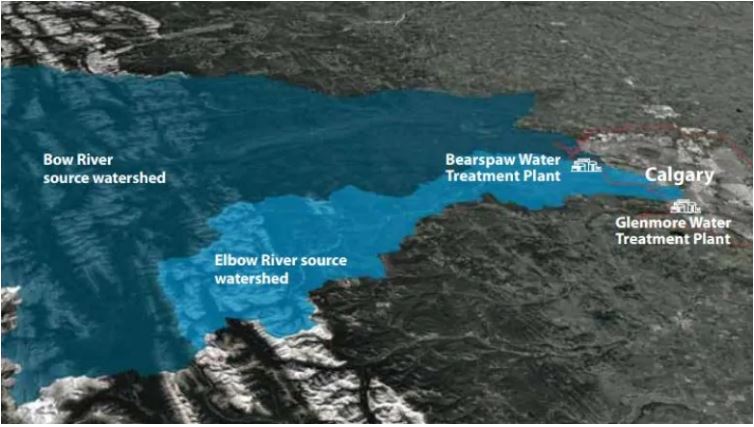As the climate continues to warm at an alarming rate, experts warn if dramatic steps to mitigate global warming are not taken, the effects in Canada’s Prairie region will be devastating to the country’s agriculture sector. According to Environment and Climate Change Canada, the country is warming, on average, about double the global rate. Scientists with the National Oceanic and Atmospheric Administration in the U.S. recently found 2020 was earth’s second-hottest year on record, with the average land and ocean surface temperature across the globe at 0.98 of a degree C above the 20th-century average. However, the agency found the northern hemisphere saw its hottest year on record, at 1.28 degrees C above the average.
Upstream wildfires could contaminate Calgary's drinking water — so the city's planning ahead
Wildfire season is getting longer in Alberta every year with climate change, scorching land and polluting the air with thick smoke. But, the City of Calgary is studying another, perhaps less obvious, impact of wildfires — drinking water contamination. There haven't been any major fires in the Bow and Elbow river watersheds, upstream of the City of Calgary, for years. But, there are fears a major fire west of the city could wash burned material into the rivers, impacting the drinking water supply for the city's 1.4 million residents.




